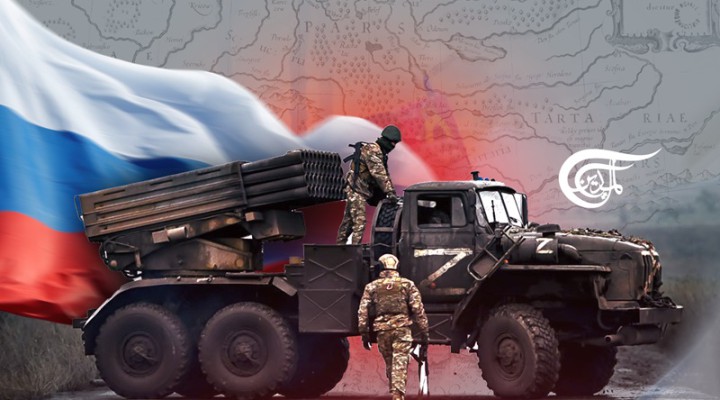Financial ‘Shock and Awe’ on Russia Pronounced ‘Dead’ — by Two Establishment Journals

The Western neo-cons do not possess ‘reverse gear’; when defeated in one sphere, they never apologise; they simply move on to the next colour-revolution.
Two very establishment, Anglo-American media in the UK finally – and bitterly – have admitted it, ‘out loud’: Sanctions on Russia failed. The Spectator (once edited by Boris Johnson), writes, the West adopted a two-pronged strategy: one was military support for Ukraine, and the other was:
“Unleashing financial ‘shock and awe’ on a scale never before seen. Russia was to be cut off almost entirely … Putin’s Russia, went the theory, would be impoverished into surrender”. Few people in the West are aware of how badly this aspect of the war is going. Europe has itself paid a high price to effect a partial boycott of Russian oil and gas.
“But [any limitations to the EU energy boycott] do not explain the scale of the failure to damage the Russian economy. It soon became clear that while the West was keen on an economic war, the rest of the world was not. As its oil and gas exports to Europe fell, Russia quickly upped its exports to China and India – both of which preferred to buy oil at a discount than to make a stand against the invasion of Ukraine.
“The West embarked on its sanctions war with an exaggerated sense of its own influence around the world…The results of the miscalculation are there for all to see…The Russian economy has not been destroyed; it has merely been reconfigured, reorientated to look eastwards and southwards rather than westwards”.
Allister Heath in The Telegraph too laments:
“Russia was meant to have collapsed by now. Britain, America and Europe’s gambit was that drastic trade, financial and technological sanctions, a cap on the price of Russian seaborne oil, and substantial help to Ukraine would be enough to defeat Moscow. It hasn’t worked…The reason? China has quietly stepped in, bailing out Putin’s shattered economy on a transformational scale, swapping energy and raw materials for goods and technology. The sanctions are a joke”.
For some, reading these words, their reaction will be one of utter amazement: How come it took this long for the British Establishment to ‘wake up’ to that which all the world knew?
The Spectator, in fact, gives us the answer: An ‘exaggerated sense of Western influence around the world’. Or simply put: delusionary hubris placed ‘blinders’ on western policy-makers; they could not see what was before their own eyes.
American and British Intelligence analysts, consumed by their conviction that Russia’s was a small, fragile economy that could never withstand the entire weight of the western economic system, ranged against it; they persuaded the Europeans that Russia’s ‘collapse’ was a ‘Slam Dunk’ certitude. The Russian financial collapse would de-stabilise Moscow’s élites, and President Putin would be ‘out’. And, under reaffirmed US hegemony, Russia’s economic affairs would be returned to ‘how they were’ — Russia as purveyor of cheap commodities to the West.
It was a huge error (on a par with that of claims that war on Iraq would generate a ‘New Middle East’). And now, Europe is paying the price. And will continue to pay the price for a long time to come.
It would be difficult however, to under-estimate the effect of these ‘insights’ percolating to the surface of the western Establishment ‘mind’. Clearly, someone in the US ‘Permanent State’ wanted them surfaced in ‘twin’ vehicles (UK media regularly serves this function for spreading messages unattributably).
Hybrid financial war — since the Iraq conflict — has been the mainstay of the Western strategy for extending its hegemony. To see that strategy so iconically debunked in Russia; to behold the ‘rest of the world’ saying that Ukraine may be a European concern, but it is not their’s; to see the widespread abandonment of the dollar for trade becoming the key mechanism for replacing the US-led unipolar world, with a multipolar world, explains much of the bitterness expressed in the two British editorial think-pieces.
That The Spectator should say that this episode of strategic miscalculation hails from over-inflated Western self-importance and represents an extraordinary moment of self-reflection, even if it is one drenched in bitterness at what ‘the mirror’ reflected back to the two authors.
But let us not get carried away. Such delusions are not about to vaporise. The Western neo-cons do not possess ‘reverse gear’; when defeated in one sphere, they never apologise; they simply move on to the next colour-revolution.
Even as I write this piece, a bill introduced by Rep Wilson and Sen McCaul, aims to bar the US government from recognizing President Assad as Syria’s President, and as a warning to other countries contemplating normalising with President Assad’s government that they could face severe consequences (i.e. financial sanction), under the Caesar Act.
The West is preparing to sanction Turkey for its links to Russia; the US continues to sanction Iraq as part of an attempt by Washington to pressure Iraq into avoiding energy cooperation with the Islamic Republic of Iran; and the US is preparing to boost its ‘defence posture’ in the Persian Gulf, with officials claiming that the Pentagon will deploy additional assets to the region to patrol commercial shipping lanes and ‘protect private vessels’ from Iran.
The sanctions mindset will not fade until the West experiences a catharsis sufficient to bring transformation to its zeitgeist. The revelation that sanctions have not worked — and that the rest of the world now sees emancipation from the hegemony of the dollar to be emancipation from US political hegemony — has come as a traumatising experience.
 TheAltWorld
TheAltWorld 
0 thoughts on “Financial ‘Shock and Awe’ on Russia Pronounced ‘Dead’ — by Two Establishment Journals”